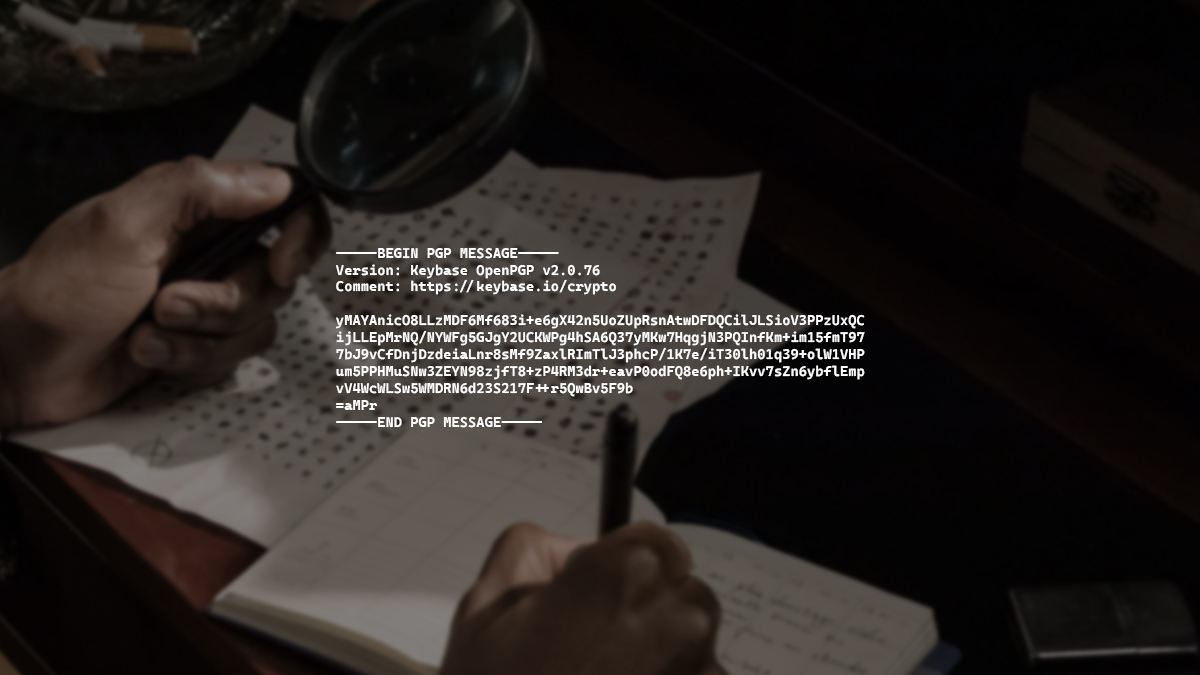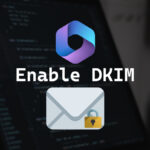
PGP
PGP (Pretty Good Privacy) has been around for a long time. PGP is a system that allows you to encrypt a message using a key pair. A key pair consists of a public key and a private key. The public and private key pair are created at the same time and are permanently linked; one can not work without the other.
The basics of PGP are that the private key has a passphrase on it that only the creator knows. When you encrypt a message with PGP you encrypt it with your private key and a public key you specify, be that your public key or someone else’s public key. This makes it so the PGP encrypted message can only be decrypted using the public key you specified.
Here is a step-by-step example of using PGP.
Setup
For this example I will use an online PGP Tool.
First we need to generate our key pair to get our public and private key.
- Fill in the options and click Generate keys
- Download the public and private key.
Below is my full PGP public key for this example.
-----BEGIN PGP PUBLIC KEY BLOCK-----
Version: Keybase OpenPGP v2.0.76
Comment: https://keybase.io/crypto
xo0EZSHBoAEEAOgwPyzB0SK3qTcMm4qAdPy5v3uB+pEydKIypNMW+aDPc4ybYAYy
lPgKXmLqAEFE7QkE6zkvOJwUAoqZLOHinAD41f66pxZfEGCcdfPF5X7PPJHyr5/y
znNZLs28O54yZ2lLbsecTR+znyADMK3oebSDnuiJURlqC8L0Y8xekwm9ABEBAAHN
GW15IG5hbWUgPGVtYWlsQGdtYWlsLmNvbT7CugQTAQoAJAUCZSHBoAIbLwMLCQcD
FQoIAh4BAheAAxYCAQIZAQUJAAAAAAAKCRAZDnvqP9lqifE8A/4ytKWOSQJLSVzY
p2K0gtSLmFOfgD+kaMQ+CdtUEBbU/V6UoMu8w1/eRS9XMX4eDTY5n+paT0r6+Vis
ej9tFhTR1O0iZ+6Bose/MBIiSElZrw38rqmlh3tJd7iL1J3/THTM58+hjj2Ld4QZ
oomr1U4ORvLRF8vUNpTlxrOKRcyiz86NBGUhwaABBADiTMFd/AcihKHreVmHpxxW
buZHdtyj7sk6j7eEWAv40LnnhtZWASiW0BR07DRQzFMQmOrHaSqwdI5Ey/B/XBIl
el5+fIp/9/wEuAL7i3/fc8ugGJoEMuW4NLSNLjzHHasd8b9QT4mxD/F96JLx1ewF
masTU56csW2UqJnrUA5LTwARAQABwsCDBBgBCgAPBQJlIcGgBQkAAAAAAhsuAKgJ
EBkOe+o/2WqJnSAEGQEKAAYFAmUhwaAACgkQ0I8cDT2aUH6QjgQAikUt4cpoaGMO
ZmuqKytMDNk8WNbcCNjuMvJFEWa5UrSlhPv//7TP/8d7fxVeQzMn1I/Z4xmbtoz9
Yg6B0opMD0BV/FO1HOkYZ+9s1CqCQTy5frKrFppf1EC176FunBXAZtenUzBpCDxb
80SVarDHo6JFF9pkuf1b6Yixp7VGzaU2DAQAvfofR3/dZ15B0eLp1kVfq49b/9uj
g/yJjG8/86xUMTh6IoHEWuWOedVo3PHiAObYTNkv8IDWxLKBJDZcDE8STpF1kWO7
lVBP2JM2VSyUPqbH/A78Its00DiEeDH1n9PyTta2SJHrRPpneTUzuCQns6KarEfn
8bxBYJMxYAyf1SXOjQRlIcGgAQQAv1rfDxtbuhBzRtzrIYC8w9O5SH34HNDiZi9d
Zdhryku358l8sQhnSnQgeHO4v0s3yk1mdCFLNBZmeBgZ0UgDH0Kw+P1S96Qj6RKs
H26e0PkUgSTtfx2KpNx/QuYLRYJJtsULyTWmT8jUvapjcNggb8rhrAtmXDwrBD0g
EK1ZkoEAEQEAAcLAgwQYAQoADwUCZSHBoAUJAAAAAAIbLgCoCRAZDnvqP9lqiZ0g
BBkBCgAGBQJlIcGgAAoJEE4F+cdvR1VK9mED/0AvioatNTUcTQyuZ6d5+/ZRRiQL
3Oxtxbn9TmHmSO8F7h7qujsTNLz17D7bPUl4V7+spWpP30sjSYu7EzFJdv0VnEUZ
c7NcGlMM3krDbgK0QnV6iX65iQ1mWFlnatXl0OVzaTYHhZZ5EAimz2HbHSeW7PTW
I/X/WfruK6LfrObQBpgD/1l20D/5yPmp7hc/CxHYQewhhg6XsO+NoE2clpyRmPg+
dqFqwMQ31gLF0z5Ob9OOnzH+dB9W7r/T5whG/VKuJMctF7URCvWJn0DA/aRs0px5
5v0gvzo6TJekLPqfajK2TRqk8ZQdZ5iM+GIYLjnstooYVJ40Hl5B9N7m6ZPBvpiv
=vnvb
-----END PGP PUBLIC KEY BLOCK-----
Code language: plaintext (plaintext)Encrypting
Now lets encrypt a message.
- Click on the Sign tab.
- Upload your private key and enter your passphrase.
- Enter your message and click Sign the message
We have now encrypted the message with your key pair. The encrypted message can only be decrypted using your PGP public key from your key pair.
Here is the encrypted message I created with my example key pair.
-----BEGIN PGP MESSAGE-----
Version: Keybase OpenPGP v2.0.76
Comment: https://keybase.io/crypto
yMALAnicO8LLzMDF6Mf683i+e6gX42nRUoZUxUOSIRmZxQpAlJtaXJyYnnpoDgsD
IxcDGysTSJKBi1MApuP3ZOb/oV09L4NVVp2UXf7z356ZuZ1vDqrfTZduP31dkFfE
LepLromYgsHTdWysIV5tYfe/TF9wdIY5y1zmrdfTZnxh0HoZ6cxbyzvrCiuDTtGT
fzd/bZ1lU3DJ44KSQ+1a9rvWgu9nJp9f9NWxUUOB57pvSlyQtMifj7m1cU4P5vgE
ZJtlf1Vq31YAADviUq0=
=4LQP
-----END PGP MESSAGE-----Code language: plaintext (plaintext)Decrypting
Now let’s decrypt the encrypted message.
- Click on the Verify tab.
- Enter the public key the message was encrypted with. In this example it is my public key.
- Enter the encrypted signed message
- Click on Verify signature to decrypt the message.
That’s all it takes to encrypt and decrypt a message with PGP.
This only covers the simplest form of PGP. You can do more advanced PGP encryption if you have the recipient’s public key which would make it so the message can only be decrypted by the recipient using your public key and their private key rather than just your public key.
If you want to read more about PGP here is RFC 4880 about PGP.













One thought on “PGP”